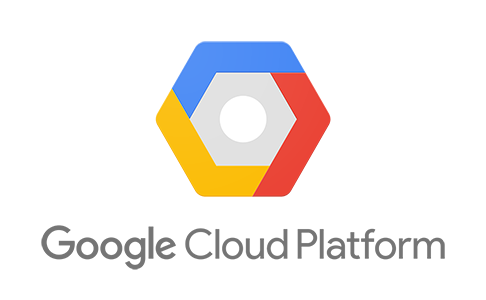https://github.com/actions-hub/gcloud
GitHub Action for interacting with Google Cloud Platform (GCP)
https://github.com/actions-hub/gcloud
action gcloud gcp github-actions gke google-cloud-platform gsutil
Last synced: 8 months ago
JSON representation
GitHub Action for interacting with Google Cloud Platform (GCP)
- Host: GitHub
- URL: https://github.com/actions-hub/gcloud
- Owner: actions-hub
- License: mit
- Created: 2019-08-21T12:57:08.000Z (over 6 years ago)
- Default Branch: master
- Last Pushed: 2025-05-14T01:50:40.000Z (8 months ago)
- Last Synced: 2025-05-14T03:29:05.579Z (8 months ago)
- Topics: action, gcloud, gcp, github-actions, gke, google-cloud-platform, gsutil
- Language: Shell
- Homepage: https://github.com/marketplace/actions/google-cloud-platform-gcp-cli-gcloud
- Size: 135 KB
- Stars: 241
- Watchers: 3
- Forks: 28
- Open Issues: 2
-
Metadata Files:
- Readme: README.md
- License: LICENSE
Awesome Lists containing this project
- awesome-actions - GitHub Action for Google Cloud Platform (GCP)
- jimsghstars - actions-hub/gcloud - GitHub Action for interacting with Google Cloud Platform (GCP) (Shell)
README
# gcloud
[](https://cloud.google.com)
GitHub Action which allows interacting with [Google Cloud Platform](https://cloud.google.com).
## Usage
To use gcloud in your workflow use:
```yaml
- uses: actions-hub/gcloud@master
env:
PROJECT_ID: test
APPLICATION_CREDENTIALS: ${{ secrets.GOOGLE_APPLICATION_CREDENTIALS }}
with:
args: info
```
You can also use `gsutil` from Google Cloud SDK package.
```yaml
- uses: actions-hub/gcloud@master
env:
PROJECT_ID: test
APPLICATION_CREDENTIALS: ${{ secrets.GOOGLE_APPLICATION_CREDENTIALS }}
with:
args: cp your-file.txt gs://your-bucket/
cli: gsutil
```
You can also use `kubectl` from Google Cloud SDK package.
```yaml
- uses: actions-hub/gcloud@master
env:
PROJECT_ID: test
APPLICATION_CREDENTIALS: ${{ secrets.GOOGLE_APPLICATION_CREDENTIALS }}
with:
args: create deployment hello-server --image=gcr.io/google-samples/hello-app:1.0
cli: kubectl
```
### Secrets
`APPLICATION_CREDENTIALS` - To authorize in GCP you need to have a [service account key](https://console.cloud.google.com/apis/credentials/serviceaccountkey).
The recommended way to store the credentials in the secrets it previously encode file with base64. To encode a JSON file use: `base64 ~/.json`. Or you can put a JSON structure to the secret.
`PROJECT_ID` - must be provided to activate a specific project.
### Using access tokens
Alternatively, you can set the environment variable `CLOUDSDK_AUTH_ACCESS_TOKEN` to a valid OAUTH token; this allows the step to be used with [Workload Identity Federation](https://cloud.google.com/blog/products/identity-security/enabling-keyless-authentication-from-github-actions).
```yaml
- id: google_cloud_auth
name: Authenticate to Google Cloud
uses: google-github-actions/auth@v1
with:
workload_identity_provider: 'projects/${{ secrets.gcp_project_number }}/locations/global/workloadIdentityPools/${{ secrets.workload_identity_pool }/providers/${{ secrets.workload_identity_provider }}'
service_account: '${{ secrets.workload_identity_service_account }}@${{ secrets.gcp_project_name }}.iam.gserviceaccount.com'
token_format: 'access_token'
- uses: actions-hub/gcloud@master
env:
PROJECT_ID: ${{ secrets.gcp_project_name }}
CLOUDSDK_AUTH_ACCESS_TOKEN: '${{ steps.google_cloud_auth.outputs.access_token }}'
with:
args: info
```
Two important notes:
1. If `CLOUDSDK_AUTH_ACCESS_TOKEN` is set, it will override any other auth configuration
2. The `gsutil` command does not support the `CLOUDSDK_AUTH_ACCESS_TOKEN` variable; use [gcloud storage](https://cloud.google.com/sdk/gcloud/reference/storage) to interact with GCS.
### Inputs
`args` - command to run.
`cli` - (optional) command line tool you want to use. Defaults to `gcloud`, allowed values: `gcloud`, `gsutil`.
### Version
For each new release of gcloud master branch is updated to the latest version. Also, the tag is creating with the same number as the gcloud version. If you want to always have the latest version of gcloud, use `@master` branch.
But if you need some specific version of gcloud just use a specific tag. For example `@271.0.0`.
## Example
### Latest version
```yaml
name: gcloud
on: [push]
jobs:
deploy:
name: Deploy
runs-on: ubuntu-latest
steps:
- uses: actions/checkout@v1
- uses: actions-hub/gcloud@master
env:
PROJECT_ID: ${{secrets.GCLOUD_PROJECT_ID}}
APPLICATION_CREDENTIALS: ${{secrets.GOOGLE_APPLICATION_CREDENTIALS}}
with:
args: app deploy app.yaml
```
### Multistep
```yaml
name: gcloud
on: [push]
jobs:
deploy:
name: Deploy
runs-on: ubuntu-latest
steps:
- uses: actions/checkout@v1
- name: "deploy to project A"
uses: actions-hub/gcloud@master
env:
PROJECT_ID: ${{secrets.GCLOUD_PROJECT_ID_A}}
APPLICATION_CREDENTIALS: ${{secrets.GOOGLE_APPLICATION_CREDENTIALS}}
with:
args: app deploy app.yaml
- name: "deploy to project B"
uses: actions-hub/gcloud@master
env:
PROJECT_ID: ${{secrets.GCLOUD_PROJECT_ID_B}}
with:
args: app deploy app.yaml
```
### Specific version
```yaml
name: gcloud
on: [push]
jobs:
deploy:
name: Deploy
runs-on: ubuntu-latest
steps:
- uses: actions/checkout@v1
- uses: actions-hub/gcloud@271.0.0
env:
PROJECT_ID: ${{secrets.GCLOUD_PROJECT_ID}}
APPLICATION_CREDENTIALS: ${{secrets.GOOGLE_APPLICATION_CREDENTIALS}}
with:
args: app deploy app.yaml
```
## Licence
[MIT License](https://github.com/actions-hub/gcloud/blob/master/LICENSE)